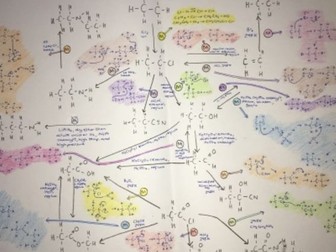AQA A level Chemistry Required practicals booklet - all 12 practicals
This booklet contains each of the 12 practicals required by the AQA A Level Chemistry syllabus.<br />
<br />
Each practical is split into the following sections:<br />
<br />
• An outline of the equipment used<br />
• Suggested methods<br />
• Diagrams showing the equipment set up<br />
• Past paper exam questions covering the practicals<br />
• Mark schemes for the questions<br />
• Examiners notes on the questions


